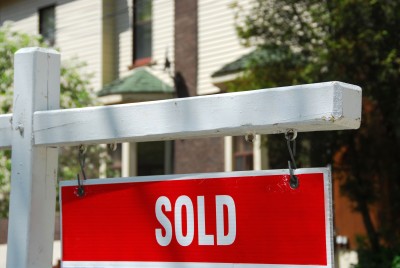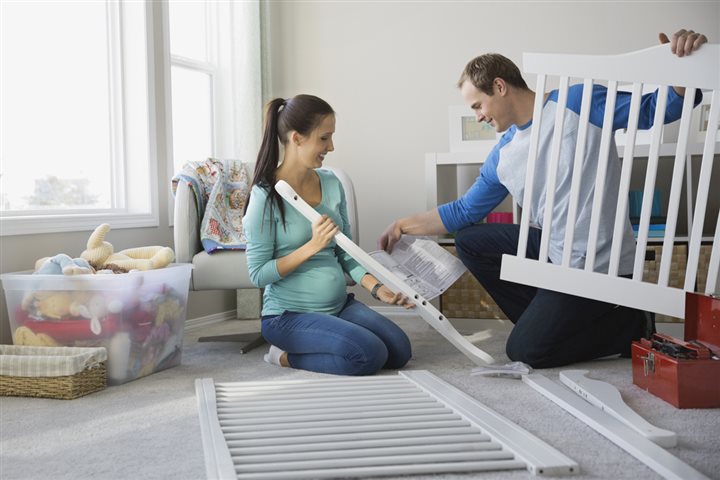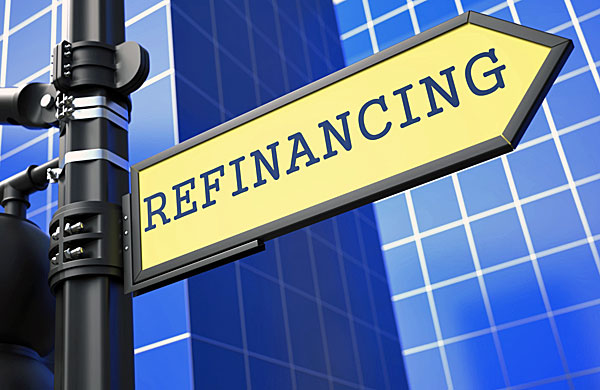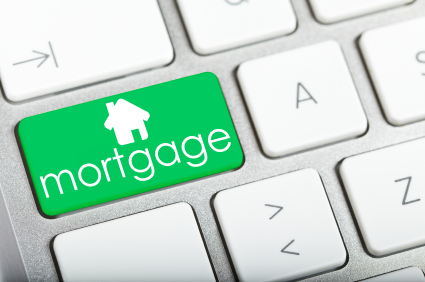 Decades ago, it was not uncommon for people to work at the same job for the entirety of their professional career. Similarly, many people kept the same home their whole lives. Those trends, however, have shifted. Today most homeowners buy and sell several homes throughout their lifetime. The reasons to sell one’s home vary—changes in family situations, neighborhood transformations, financial changes, and many others. However, the most popular reasons sellers decided to leave their home for another are quite simple—people moving to new areas and outgrowing their homes. According to the National Association of REALTORS® 2014 Profile of Home Buyers and Sellers, 15 percent of sellers sold their previous home because the place was too small. That number was much higher (30 percent) among first-time sellers. Additionally, another 15 percent sold their last home due to job relocation. Are you considering selling your home? Get a free current market analysis here.
Decades ago, it was not uncommon for people to work at the same job for the entirety of their professional career. Similarly, many people kept the same home their whole lives. Those trends, however, have shifted. Today most homeowners buy and sell several homes throughout their lifetime. The reasons to sell one’s home vary—changes in family situations, neighborhood transformations, financial changes, and many others. However, the most popular reasons sellers decided to leave their home for another are quite simple—people moving to new areas and outgrowing their homes. According to the National Association of REALTORS® 2014 Profile of Home Buyers and Sellers, 15 percent of sellers sold their previous home because the place was too small. That number was much higher (30 percent) among first-time sellers. Additionally, another 15 percent sold their last home due to job relocation. Are you considering selling your home? Get a free current market analysis here.
Take a look at Chester County PA Real Estate Market Trends for April broken down by school district.
Downingtown School District
The number of homes selling in the Downingtown school district in April 2015 rose by 32.73% when compared to April 2014. The average selling price increased by 5% to $381,938. The median selling price increased by 6.45%, while the average market time increased by 9 days.
| Date |
Sold
Listings |
Average
Selling Price
|
Median
Selling Price |
Average
Days On Market |
| Apr 2015 |
73 |
$381,938 |
$341,000 |
63 |
| Apr 2014 |
55 |
$365,468 |
$320,350 |
54 |
West Chester School District
The number of homes selling in the West Chester school district in April 2015 increased by 15.48% when compared to April 2014. The average selling price increased by 12.53% to $405,894. The median selling price increased by 11.28% while the average market time increased by 13 days.
| Date |
Sold
Listings |
Average
Selling Price
|
Median
Selling Price |
Average
Days On Market |
| Apr 2015 |
97 |
$405,894 |
$370,000 |
75 |
| Apr 2014 |
84 |
$360,702 |
$332,500 |
62 |
Coatesville School District
The number of homes selling in the Coatesville school district in April 2015 increased by 12.773% when compared to April 2014. The average selling price decreased by 8.91% to $224,979. The median selling price decreased 10.17%, while the average market time dropped by 1 day.
| Date |
Sold
Listings |
Average
Selling Price
|
Median
Selling Price |
Average
Days On Market |
| Apr 2015 |
53 |
$224,979 |
$220,000 |
87 |
| Apr 2014 |
47 |
$246,996 |
$244,900 |
88 |
Great Valley School District
The number of homes selling in the Great Valley school district in April 2015 increased by 16.67% when compared to April 2014. The average selling price decreased 10.19% to $448,052. The median selling price rose by .34%, while the average market time increased by 10 days.
| Date |
Sold
Listings |
Average
Selling Price
|
Median
Selling Price |
Average
Days On Market |
| Apr 2015 |
28 |
$448,052 |
$445,000 |
75 |
| Apr 2014 |
24 |
$498,907 |
$443,500 |
65 |
Unionville School District
The number of homes selling in the Unionville school district in April 2015 increased by 39.13% when compared to April 2014. The average selling price decreased 5.83% to $418,798. The median selling decreased 1.56% while the average market time dropped by 52 days.
| Date |
Sold
Listings |
Average
Selling Price
|
Median
Selling Price |
Average
Days On Market |
| Apr 2015 |
32 |
$439,834 |
$447,900 |
66 |
| Apr 2014 |
23 |
$467,053 |
$455,000 |
118 |
Tredyffrin-Easttown School District
The number of homes selling in the Tredyffrin-Easttown school district in April 2015 decreased by 9.3% when compared to April 2014. The average selling price decreased by 3.98% to $399,919. The median selling price dropped by .64% while the average market time decreased by 12 days.
| Date |
Sold
Listings |
Average
Selling Price
|
Median
Selling Price |
Average
Days On Market |
| Apr 2015 |
39 |
$399,919 |
$387,500 |
40 |
| Apr 2014 |
43 |
$416,509 |
$390,000 |
52 |
Owen J Roberts School District
The number of homes selling in the Owen J Roberts school district in April 2015 increased by 6.25% when compared to April 2014. The average selling price increased by 21.04% to $318,099. The median selling price increased by 25.31% while the average market time rose by 20 days.
| Date |
Sold
Listings |
Average
Selling Price
|
Median
Selling Price |
Average
Days On Market |
| Apr 2015 |
34 |
$318,099 |
$280,000 |
116 |
| Apr 2014 |
32 |
$262,812 |
$223,450 |
96 |
Phoenixville School District
The number of homes selling in the Phoenixville school district in April 2015 increased by 10.53% when compared to April 2014. The average selling price increased by 13.17% to $215,470. The median selling price increased by 16.1%, while the average market time decreased by 7 days.
| Date |
Sold
Listings |
Average
Selling Price
|
Median
Selling Price |
Average
Days On Market |
| Apr 2015 |
21 |
$215,470 |
$219,900 |
46 |
| Apr 2014 |
19 |
$190,400 |
$189,400 |
53 |
Curious about the value of your home? Get your home's value here!
Information courtesy of Chester County PA Realtor Scott Darling.
.jpg) The value of home improvements has two primary considerations:
The value of home improvements has two primary considerations: better match for financing a wedding. The key is to research the various types of loans, know what services they're designed to provide and then choose the one that best fits your financial needs.
better match for financing a wedding. The key is to research the various types of loans, know what services they're designed to provide and then choose the one that best fits your financial needs. it, and how you give it the water it needs. Here are some water-conservation tips for growing a garden and using the least amount of water possible:
it, and how you give it the water it needs. Here are some water-conservation tips for growing a garden and using the least amount of water possible: Decades ago, it was not uncommon for people to work at the same job for the entirety of their professional career. Similarly, many people kept the same home their whole lives. Those trends, however, have shifted. Today most homeowners buy and sell several homes throughout their lifetime. The reasons to sell one’s home vary—changes in family situations, neighborhood transformations, financial changes, and many others. However, the most popular reasons sellers decided to leave their home for another are quite simple—people moving to new areas and outgrowing their homes. According to the National Association of REALTORS® 2014 Profile of Home Buyers and Sellers, 15 percent of sellers sold their previous home because the place was too small. That number was much higher (30 percent) among first-time sellers. Additionally, another 15 percent sold their last home due to job relocation. Are you considering selling your home?
Decades ago, it was not uncommon for people to work at the same job for the entirety of their professional career. Similarly, many people kept the same home their whole lives. Those trends, however, have shifted. Today most homeowners buy and sell several homes throughout their lifetime. The reasons to sell one’s home vary—changes in family situations, neighborhood transformations, financial changes, and many others. However, the most popular reasons sellers decided to leave their home for another are quite simple—people moving to new areas and outgrowing their homes. According to the National Association of REALTORS® 2014 Profile of Home Buyers and Sellers, 15 percent of sellers sold their previous home because the place was too small. That number was much higher (30 percent) among first-time sellers. Additionally, another 15 percent sold their last home due to job relocation. Are you considering selling your home?  1. What are my financial goals?
1. What are my financial goals? In the case of a couple having a joint mortgage, the death of one spouse will simply mean the other spouse becomes the sole mortgage-holder. As long as she can continue making the payments, the property will be unaffected. Federal law prohibits the lender from calling the entire mortgage due because one spouse has passed away.
In the case of a couple having a joint mortgage, the death of one spouse will simply mean the other spouse becomes the sole mortgage-holder. As long as she can continue making the payments, the property will be unaffected. Federal law prohibits the lender from calling the entire mortgage due because one spouse has passed away.  Here’s a summary of some thoughts from
Here’s a summary of some thoughts from 



